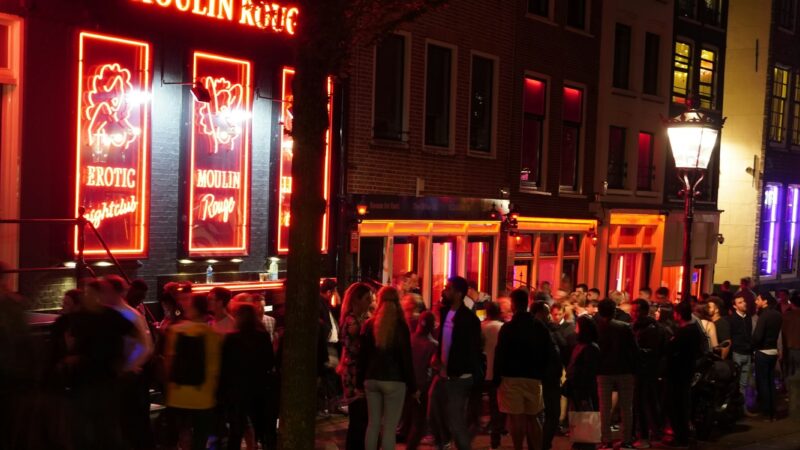Ignore the snarky joylessness of self-important losers and the performative perplexing of Very Serious Political Commentators, the past few days have been hilarious. Brought down by inadvertent kamikaze molester “Pincher by name, Pincher by nature” Chris Pincher, appointed to be (you couldn’t write this) a party whip, amounts to more than another Gay Tory Predator scandal. Instead, we are finally witnessing the end of Johnson’s inert and wasteful premiership.
Here I was thinking we’d be dealt an anti-climactic resignation over a piddly piss-up. All those times half-wit pundits, with their mundane alcoholism, lapsed anuses and hyperlinked relatives on Wikipedia, insisted that “it’s over” for Boris, only for such prospects to be dashed when a big fat *nothing happens*, effectively wore down the belief that Johnson could be removed at all.
However, just as a monkey could write Shakespeare if given enough attempts, journalists occasionally conjure the ability to publish something with a kernel of veracity, in this case – the government is imploding because Johnson feigned ignorance of Pincher’s pinching.
As funny as it is to see Boris’ top guys do a 180 in less than 24 hours, contrasted to the inexhaustible ride-or-die energy of Nadine Dorries, you came here for Insightful Political Commentary; a lucid outline of What is To Be Done, you came here for The Ideas. Very well, ladies and gentlemen. After all, chaos is a ladder.
Like most conservatives, I am torn between my hatred of Johnson and my hatred of full-time Johnson-haters. The former was handed an unconstrained sledgehammer to smash the Blairite machine. Criminally underutilised, it was primarily used for tasks completely incongruent with the telos of a sledgehammer – Building Back Better, Levelling Up, etc.
Adding insult to injury, the constructivist rhetoric was entirely devoid of actual construction. Housing prices continue to climb, the borders are wide open, the tax burden continues to punish the most productive, supply-side solutions to energy problems are practically non-existent, and all ‘attempts’ at resolving [REDACTED] have mounted to nothing more than superficial lip service to whip up momentary support from disaffected voters. For a man versed in the classics, Boris should know Heraclitus’ First Cause – Construction and Destruction were born joined at the hip, the fire which festers within a blacksmith’s forge and the fire which springs from a Molotov cocktail are the same force.
In the case of the latter, the full-timers sincerely believe that Boris has made extensive use of his loaned hardware, obliterating Those Ancient British Traditions: the NHS (1946), the HRA (1998), Supreme Court (2005), Britain’s membership of the EU (1992), etc. Ironically, had Johnson aspired (never mind achieved) more than a measly fraction of the aforementioned, he would be leading by double-digits.
The derangement of these full-timers makes one wish Johnson had made like Caesar and crossed the Rubicon. If not to pursue a revolutionary agenda, then to amplify the deserved misery of Britain’s worst inhabitants; the type of people that Tumblr-format tweets about having integrity in politics – “The Parties, The Lies, The Cheese and Wine, it’s DISGUSTING” – as they listen intently to the most recent episode of Alastair Campbell’s podcast.
It’s old news, but it’s worth remembering that Boris is not a conservative. He’s a liberal whose self-obsession disrupted what would have been his natural Brexit alignment. He’s managed to court support from people who would otherwise not have supported him, knowing full well they have little realistic alternative. A socially liberal chieftain of a socially conservative tribe, a Globalist commander of a nationalist army, Boris’ betrayal of both sides of Britain’s politico-cultural schism are finally converging, depriving him of what he values the most: popularity. Like Louis XVI awkwardly donning the revolutionary bonnet, Johnson found himself divided between his political inclinations, those of his new compatriots, and his desire to remain popular irrespective of circumstance.
A high-tax, high-immigration, high time-preference, low-wage, low-cohesion, low-growth Britain with a political life routinely interspersed by the misdeeds of a Prime Minister that backstabs his own supporters and elevates pillow-talk policy over national priorities. Brexit was always more than technical independence from the EU. Sovereignty was never the ultimate end. The Leave coalition was underpinned by the pursuit of sovereignty, but it was the prospect of exercising this sovereignty that brought about the electoral realignment. It was why the Nationalist-Brexiteer majority and the Globalist-Brexiteer minority could co-operate. Not a means to an end, but a means to greater means, and from these greater means a true ultimate end. A half-baked means (see: ECHR), but a necessary means, nonetheless. Even without Brexit, to waste such a supermajority, as a Conservative, should be grounds for life imprisonment.
In case you haven’t noticed, I am not outraged at “THE LIES”. Expecting politics to be free of lies, noble or otherwise, is like expecting the sea to be free of fish. It’s that a national revolution, literally decades in the making, has been squandered by a fat, self-absorbed, Etonian mutt that cares more about getting cummies from mid women and supporting The Current Thing like the insufferable libtard he is, rather than using a historic opportunity to liberate his country from institutionally inflicted self-harm; a stranglehold that will certainly be reinforced under a Labour government.
Speaking of Labour, how is the mortician doing? Has he recovered from his divorce yet? If the polls are to be believed, he’s doing better than a country with half-serious political system would allow. I do not believe mass reconversions to Labour will occur. The next election will be decided by the magnitude of [c]onservative disaffection.
And what of future Conservative leadership? Oh joy, a choice between Loony Liz and Total War Tom; an accidental hot war with Russia vs an intentional hot war with Russia. Decisions, decisions. Then again, what do you expect when given the option between an ex-Liberal Democrat and a dual-citizen neocon? It all screams “Look at me, I’m a rat that will jump wherever!”.
Rishi? The ‘Diversity Built Britain’ guy? Okay sure, he didn’t run cover for Pincher but he’s still a dull gremlin with a non-dom wife – not a good look! Besides, he’s still “implicated” by “Partygate” – an even worse look! Hunt deserves more contempt than can be articulated by the human tongue. Javid is an NHS fundamentalist. Not only does he worship the NHS, but he also unnecessarily attacks people on Twitter that dare to criticise it. Braverman is a Judas Goat – either she puts up or shuts up. Does anybody have an opinion of either Gove or Zahawi that isn’t associated with unnecessary underhandedness?
Mordaunt will be Theresa May 2.0 – the untainted candidate that slides in from the side-lines, garnering popularity from the prospect of some maternal reconciliation. Indeed, thoroughly disgusting prospect. This country can’t endure five seconds of political excitement without wailing like an infant. Speaking of Theresa May, she’s rumoured to be a potential “caretaker Prime Minister”. Does nobody remember her premiership? She embodies this country’s infuriating sentimentalism towards mediocre politicians. Furthermore, the timeline will be unbearable. Every sycophantic bint with a “Bloody Difficult Woman” tote bag from 2017 will re-emerge, squawking about the totally-not-astroturfed-and-definitely-politically-attractive notion of Compassionate Conservatism.
For all his faults, at least Boris had some charisma. One suspects people were banking on 2019 to make Parliament a little less boring, replenish it with at least a few interesting people. But no, we got potato sacks.
It is easy to imagine that Johnson will become a Girardian scapegoat for the coming Parliament – an environment defined by his ostracization and anything that can be construed to be representative of his presence (very easy for a man with the track record of an erratic ape). Onto him, all the ‘sins’ of the past 3 years will be unanimously piled; his resignation will represent an exorcism that alleviates whatever is political convenient for his ex-compatriots and the neurotic full-timers. An insulated circlejerk which will barely disguise an aggressive repositioning against the progressively minded – “if Johnson’s premiership was the result of Brexit, then nothing like Brexit can happen again”, and so on.
In the end, whatever maximises political randomness may best serve the betrayed. January 6th kino isn’t coming to Britain (we’re far too boring for something like that), but there’s certainly no reason to support the Conservatives at the next election. At this point, democratising the Conservative Party should be on the table. We cannot carry on with a system which consistently produces such terrible representatives – ones which can so easily abuse (literally and figuratively) the party’s support base and continuously get away with it.
Brace for the self-righteous gush that will begin to flow courtesy of Johnson’s neuron-cranking retardation. The BBC will find another reason to put Ian Hislop on the television and use “Should I Stay or Should I Go” in whatever slapdash documentary comes out of this. Unfunny comedians will tune into radio shows to compare Johnson to their ex-boyfriends. “The 2022 UK Government Crisis Shows the Enduring Problem of White Male Fragility. Discuss.” (40 marks).
Enoch Powell said that “all political careers end in failure”. On a technical level this is true, but few political careers end with the squandering of a revolution. The boy who wanted to be king was gifted the crown on a velvet cushion and, when placing the crown onto his head, dropped it into the gutter. Here’s hoping the crown can be retrieved by someone of kingly calibre and salvage the future that could have been.



